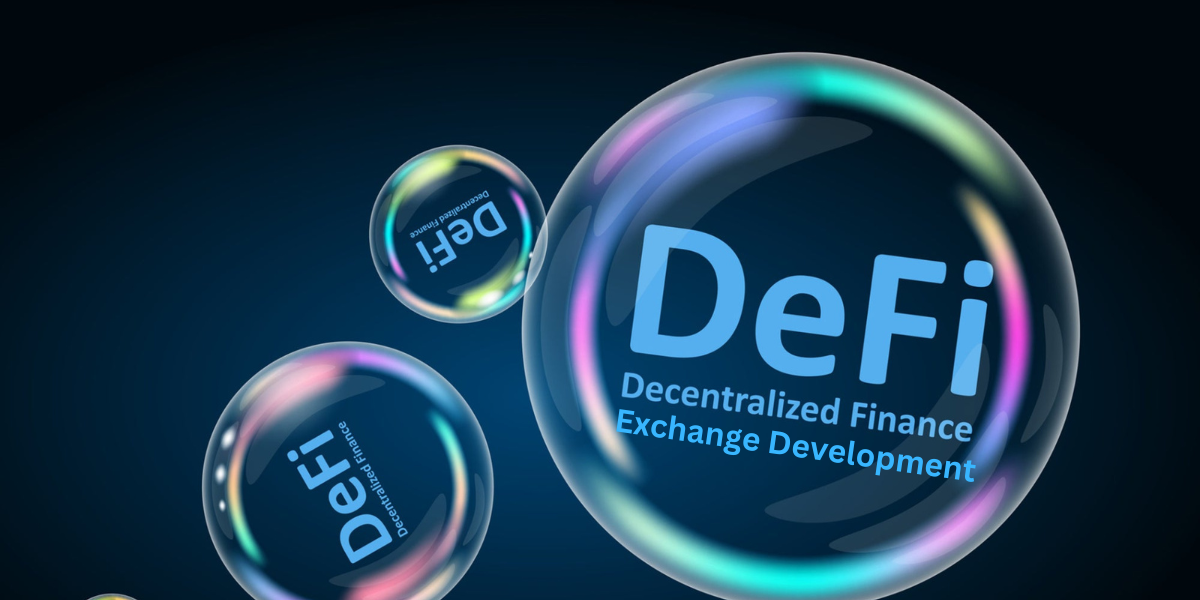The financial industry has witnessed a groundbreaking transformation with the advent of decentralized finance (DeFi) exchanges. These platforms have revolutionized the way we perceive and engage in financial transactions. DeFi exchanges operate on the principles of decentralization, transparency, and trustlessness, offering a viable alternative to traditional centralized exchanges. By leveraging blockchain technology and smart contracts, DeFi exchanges enable users to trade digital assets directly, eliminating the need for intermediaries.
Understanding DeFi Exchanges:
- Definition and characteristics of DeFi exchanges: DeFi exchanges are decentralized platforms that enable users to trade cryptocurrencies and other digital assets directly without intermediaries. They operate on blockchain technology, offering transparency and trustlessness.
- Importance of decentralization in financial transactions: Decentralization eliminates the need for intermediaries, allowing users to have full control over their funds and reducing the risk of censorship or manipulation.
- Key benefits of DeFi exchanges over centralized exchanges: Benefits include increased privacy, lower fees, faster transactions, global accessibility, and the ability to participate in various DeFi protocols.
- Examples of popular DeFi exchanges in the market: Some popular DeFi exchanges include Uniswap, SushiSwap, PancakeSwap, and Balancer.
Core Components of DeFi Exchange Development:
- Smart contracts: Smart contracts are self-executing contracts stored on the blockchain that automate transactions and enforce the rules of the exchange.
- Liquidity pools: Liquidity pools consist of funds provided by users to facilitate trading. They enable decentralized and automated market-making.
- User wallets and private key management: User wallets store private keys that grant access to their funds and enable secure transactions.
- Integration of blockchain protocols: DeFi exchanges integrate with blockchain protocols like Ethereum or Binance Smart Chain to leverage their functionalities and network effects.
- Security measures: DeFi exchanges implement various security measures, such as audits, bug bounties, and multi-signature wallets, to protect against hacks and vulnerabilities.
Key Features of DeFi Exchanges:
- Peer-to-peer trading: DeFi exchanges enable direct transactions between users without the need for intermediaries.
- Automated market-making: Automated algorithms facilitate liquidity provision and ensure efficient trading.
- Yield farming and staking: Users can earn passive income by providing liquidity or staking their assets in DeFi protocols.
- Permissionless and censorship-resistant trading: Anyone can participate in DeFi exchanges without restrictions or the risk of censorship.
- Transparent and auditable transactions: All transactions on DeFi exchanges are recorded on the blockchain, enabling transparency and auditability.
Future Outlook of DeFi Exchanges:
- Democratizing finance: DeFi exchanges have the potential to provide financial services to the unbanked and underserved populations, increasing financial inclusivity.
- Integration with real-world assets: DeFi exchanges may expand to include tokenization and trading of real-world assets, such as stocks, real estate, or commodities.
- Cross-chain interoperability: DeFi exchanges are expected to support interoperability between different blockchain networks, allowing seamless asset transfers.
- Enhanced security measures and privacy features: Continuous development will lead to improved security measures and privacy-enhancing technologies within DeFi exchanges.
- Adoption and mainstream acceptance: DeFi exchanges may gain wider adoption and become an integral part of the global financial ecosystem as decentralized finance gains mainstream acceptance.
Conclusion
DeFi exchanges have revolutionized finance by offering decentralized, transparent, and accessible services. They have reshaped the traditional financial landscape, empowering individuals with greater control over their assets and enabling participation in a global financial ecosystem without intermediaries. Ongoing innovation in DeFi exchange development holds immense potential for revolutionizing global finance. It promises to provide individuals with enhanced financial freedom, inclusivity, and control over their financial destinies. The future of DeFi exchanges is bright, with the potential to transform the way we interact with and manage our finances on a global scale.





Comments